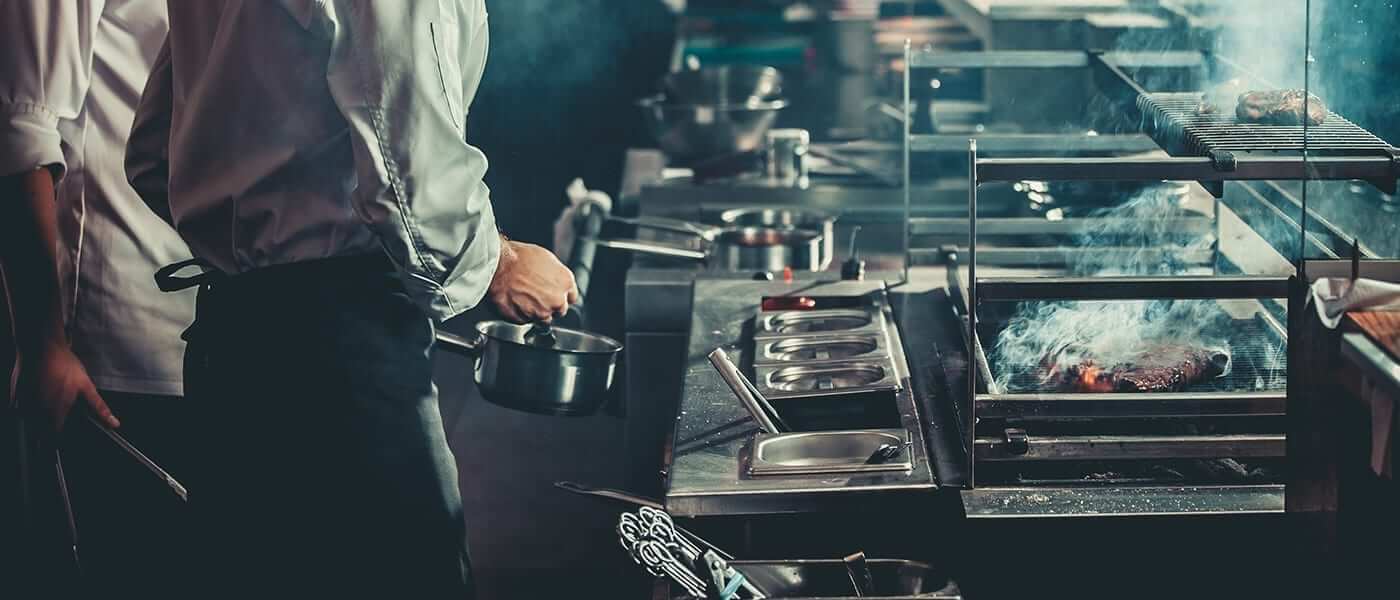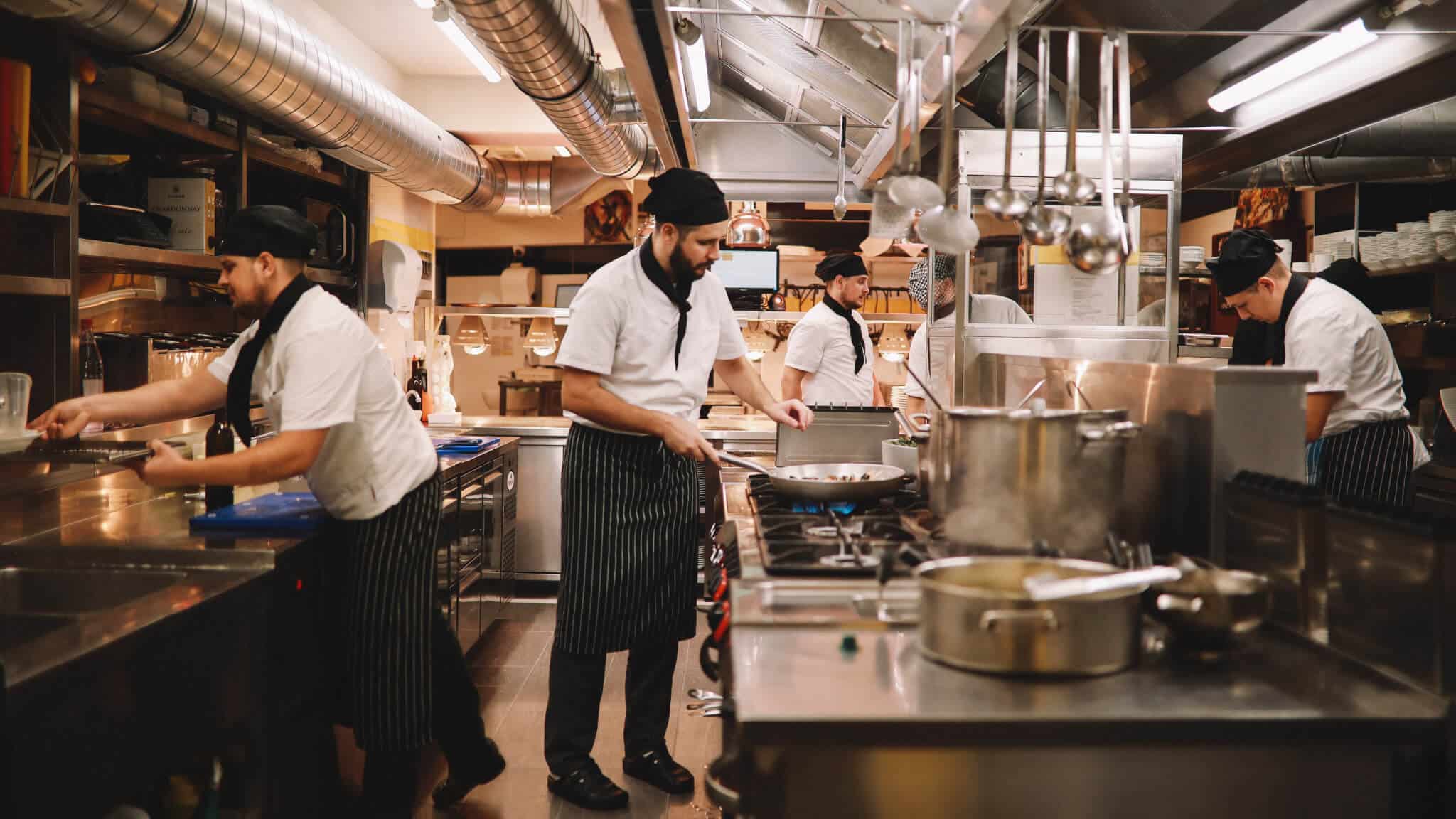Table of contents
Updated 7/5/2024
Many people across the country - and from all demographic categories and walks of life - dream of being at the helm of their very own restaurant, either as an active part of the team or as a more hands-off investor who stays in the background and delegates accordingly.
However, starting from ground zero with no relationships with suppliers, no brand visibility, and no ready-to-roll supply chain infrastructure and marketing materials can be daunting — and certainly risky as well.
That’s where restaurant franchise financing comes into play - it allows you to capitalize on new opportunities and cover upcoming expenses by getting the funding you need to accomplish your franchising goals.


What Is Restaurant Franchise Financing?
Restaurant franchise financing refers to the variety of financing loans and programs available to entrepreneurs who are looking to capitalize on new opportunities and cover upcoming expenses. So, what are some of the most common restaurant franchise financing options, and how can you use them for your restaurant business? Let’s take a look:Business Line of Credit
A business line of credit is an excellent option if you are looking for flexible restaurant financing - it allows you to draw funds up to a certain limit on an as-needed basis and only pay interest on the amount you’ve drawn. For example, let’s say that you secure a $500,000 line of credit for your restaurant franchise, but you don’t need to use all of it immediately. You draw $250,000 to cover initial inventory and advertising expenses - as you repay the funds (+ interest), they become available again for future needs, such as seasonal fluctuations.Business Term Loans
Business term loans are another great tool if you are looking for restaurant franchise financing options - they allow you to secure a lump sum of money that you repay over a fixed term with set monthly payments, usually up to 25 years. For example, you can take out a $300,000 business loan to pay for franchise fees, real estate costs, initial renovations, and Marketing campaigns. The loan term is 10 years, allowing you to jumpstart your restaurant business without depleting your cash reserves.Equipment Financing
Equipment financing is a specialized restaurant financing option that provides you with the funds you need to purchase equipment - such as walk-in coolers and freezers, a convection oven, or a large high-capacity fryer that can cost up to $8,000. For example, let’s say you need $30,000 to purchase a walk-in freezer, two convection ovens, and a large air fryer as your starter restaurant equipment. With an equipment financing loan, you can secure funds specifically for these purchases, with the equipment itself serving as collateral for the loan.Revenue-Based Financing
Another restaurant franchise financing option, perfect if you are just starting your restaurant and you don’t have consistent revenue yet, is revenue-based financing. It allows for flexible repayments tied to your revenue, easing cash flow management during slow periods. For example, you apply for $75,000 in revenue-based financing to cover your startup costs. In return, you agree to pay 7% of your monthly revenue until the loan and a fee are repaid. You pay more during months with higher revenue and less during slower months.SBA Loans
One of the most sought-after restaurant franchise financing options are SBA loans, which are backed by the Small Business Administration. They allow you to borrow up to $15 Million as a lump sum for practically any business purpose. For example, you apply for an SBA 7(a) loan for $250,000 to cover various startup costs, including franchise fees, real estate, and working capital. The loan term is 10 years, with a lower interest rate than traditional loans, making monthly payments more manageable.Small Business Loans
If you are looking for restaurant franchise financing, you can also opt for small business loans. They allow you to get a lump sum of money for a wide variety of business purposes. You are expected to pay the principal, plus interest, in full within the terms outlined in the loan agreement. For example, you obtain a $200,000 small business loan to cover the initial costs of opening your franchise restaurant - including franchise fees, lease deposits, inventory, and Marketing. The loan has a five-year term with fixed monthly payments, providing the necessary capital to get your franchise up and running.What is Restaurant Franchise Financing Used For?
Restaurant franchise financing can be used for a variety of business purposes, some of which include:- Initial franchise fees for the rights to operate the franchise
- Expenses for leasing or purchasing the restaurant’s location
- Costs for building or renovating the restaurant space
- Purchase of equipment and inventory
- Working capital, including payroll and utilities
- Marketing and Advertising fees
- Costs for training staff
What Are The 5 Rules of Franchise Financing?
Franchise Financing Rule #1: Don’t Assume the Timeline
Some lenders promise “quick restaurant franchise financing” — but end up taking months to seal the deal. Don’t get trapped by marketing hype. Ensure that you know how long it’s going to take to go from “Congratulations, you’re approved!” to “Here’s your cash.”Franchise Financing Rule #2: Don’t Underestimate How Much You’ll Need
There’s more to owning a franchise than paying the initial licensing fees. There’s overhead (rent, utilities, security, insurance, etc.), staffing costs, and more. Analyze your short, medium, and long-term spending requirements, and align your franchise financing strategy accordingly.Franchise Financing Rule #3: Explore All of Your Options
Just as banks aren’t the only — and often, not the best — options for getting a residential mortgage or personal loan, they shouldn’t be your only source for restaurant franchise financing. Explore the alternative lending marketplace, where you’ll find lenders willing to lean forward and support your franchise goals vs. make you jump through hoop after hoop.Franchise Financing Rule #4: Beware of ROBS
Rollovers as Business Startups (ROBS) are often touted as smart options for restaurant franchise financing, since it lets borrowers pull funds from their registered retirement accounts (401(k), traditional IRA, etc.). What’s the downside of this? Well, as warned by Franchise Times Magazine, the Internal Revenue Service is taking a much closer look at ROBS, and has declared them a “questionable” borrowing tactic that could result in “adverse tax consequences.” In other words: if you head down this road, you could be slapped with an IRS bill for tens or hundreds of thousands of dollars in back taxes and fines. Plus, working with a ROBS consultant to navigate the complex maze isn’t cheap. You can expect to pay $5,000-$250,000 in fees by the time everything is done. That’s money that could be put back into your franchise vs. a consultant’s coffers.Franchise Financing Rule #5: Crowdfunding? Don’t Count on It
While there are a few notable crowdfunding success stories, the chances of raising enough capital to purchase a franchise are virtually non-existent. Basically, aside from family and friends who may feel a sense of obligation to contribute to a campaign, there is no compelling reason for members of the general public to subsidize your (or anyone else’s) dream of restaurant franchise ownership. It’s nothing personal. It’s just reality. With this being said, you can certainly launch a crowdfunding campaign and hope to catch lightning in a bottle; after all, anything is possible. But do yourself a profound service by focusing your attention, efforts and resources on obtaining franchise funding from a legitimate lending firm. You’ll be glad you did.Franchise Financing Rule #6: Expect Unexpected Expenses in Business
When it comes to restaurant franchise financing, another thing to keep in mind are unexpected expenses in business. Franchisors are required to communicate the cost of entering into a franchise agreement, including the initial franchise fee and any ongoing royalties or fees you’ll be expected to pay. Some franchisors may provide financial help at the outset; others expect franchisees to foot the bill for just about everything. You should plan to cover common business expenses like:- Commercial real estate
- Licensing and insurance
- Equipment
- Marketing
- Inventory






